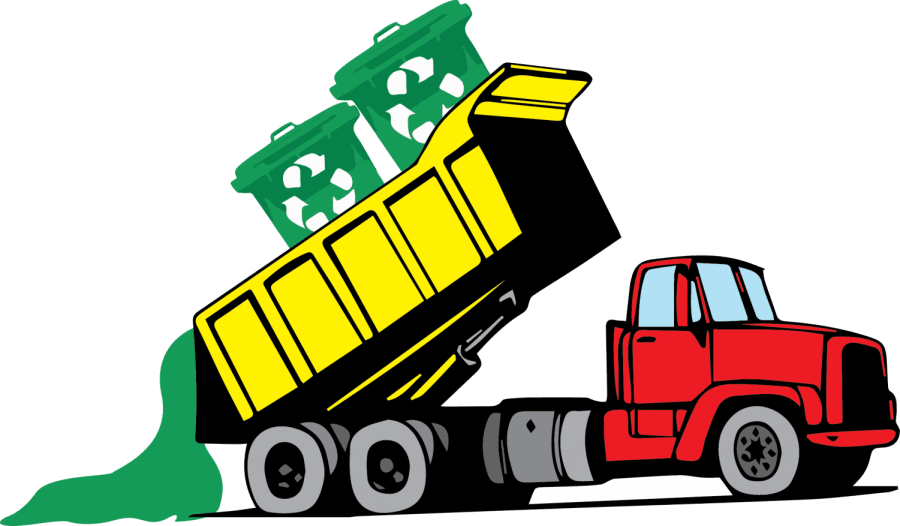DePaul students and staff have called for an improvement for recycling practices in Chicago, following a report that much of the city’s recyclable items have instead been sent to landfills.
The increased interest in recycling follows a massive investigation by the Better Government Association (BGA) and NBC 5 Investigates that revealed that more than half a million Chicago recycling bins have been tossed in landfills over the past four-and-a-half years. The report says that a large portion of the problem is rooted in a city rule that states generally recyclable materials can be marked “grossly contaminated”— and sent to landfills—if the bin contains as little as one plastic bag or food item.
The report also says that Chicago ranks as the worst major city in the United States for recycling rates in residential areas, with less than 9 percent of waste being recycled.
“I’m not surprised to find out Chicago’s recycling rate is so low,” said Margaret Workman, an environmental science instructor and laboratorian at DePaul. Workman “I wasn’t aware of the exact number, but I assumed it was pretty low.”
The city aimed to increase its poor recycling rate in the 1990s by instituting a blue bag program, which encouraged Chicago citizens to purchase different garbage bags—blue-colored for differentiation—for recyclables. When the program failed, the city attempted a few other initiatives, but none of them have been able to raise the city’s recycling rate thus far.
DePaul professors say that they hope the recent investigation into Chicago recycling will not discourage people from recycling, but rather will inspire them to put more effort into the initiative.
Workman says she has faith in DePaul students, believing they can make a difference to help solve this problem.
“I think students are a very enthusiastic group,” Workman said. “We could get a much higher percent of items recycled, because I know most students are willing to at least try to help the Earth.”
Other professors echoed the same message, citing their own research as evidence of student i n v o l v e m e n t leading to success.
“One project I work is about air quality, and we have students [at DePaul Prep] use low-cost, wearable air quality sensors,” said Mark Potosnak, associate professor and chair of DePaul’s Environmental Science department “We’re interested in the type of air quality they’re exposed to, sure, but we’re also, as a larger thing, interested in if students get more engaged with environmental issues by participating in projects. And I think they definitely do.”
Recycling is just one way to practice daily sustainability in households which has been proven to be beneficial to the environment. It conserves limited natural resources, prevents pollution, saves energy, and reduces the amount of waste sent to landfills, according to the U.S. Environmental Protection Agency.
“I do think [recycling] is important, just as one thing we can do,” Workman said. “Resources are limited, and there’s only so much of anything on the Earth. As we mine it, we’re depleting the resources. And, the materials don’t go back into the Earth; they get buried in a landfills, which makes it very hard to use again. The only way to keep it going is recycling. Also, it takes less energy to make materials from recycled materials than just from the raw materials, so that’s another reason to do it.”
Chicago’s status as the worst city in America for recycling coincides with the wake of the recent climate report put out by U.N. scientists that said the planet has less than two decades to reverse the impact of climate change.
Due to the severity of the claim made by the U.N., DePaul students say that the time for living unsustainably has ended.
“I know that I try to live sustainably, and I also know that lots of people don’t,” said Emily Burnett, sophomore. “What I didn’t know is that we had so little time to fix things. I always thought the world would begin to see adverse effects when I was dead, but knowing that it’s probably going to happen in our lifetimes when we’re still relatively young really scares me.”
Some students say they hope that reports like BGA and CBS 5 Investigates’ are a wake up call for those who choose to ignore easy ways to be environmentally savvy.
“I’m going to be doing the same thing I’ve always done which is just to keep recycling,” Burnett said. “Maybe I’ll wash out the containers a little better, or if I see something like a roommate’s plastic Starbucks cup in the trash, reach in and clean it to recycle it instead, but what I really hope is that people who don’t already recycle decide it’s time to change.”
Professors reiterated that without individuals taking direct actions to help the environment, postive change is not possible.
“People learn a lot by doing,” Potosnak said. “I want to install an idea of citizen science. People are more likely to be concerned for the environment if they’ve taken the time to participate.”
DePaul students said they agreed that helping the planet by individual actions like recycling should be encouraged.
“Recycling is just one more way to help preserve the environment,” Burnett said. “If we can reuse even just some items, we should.”



